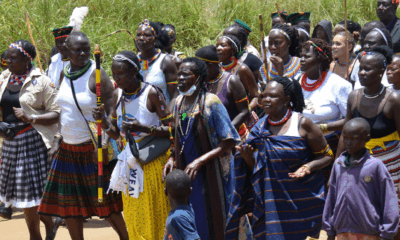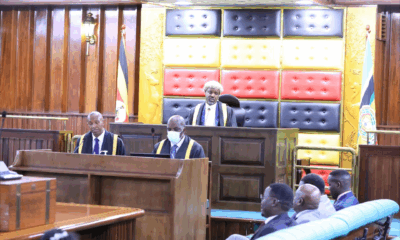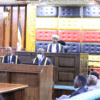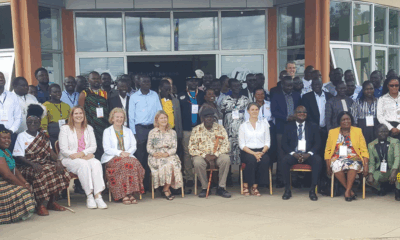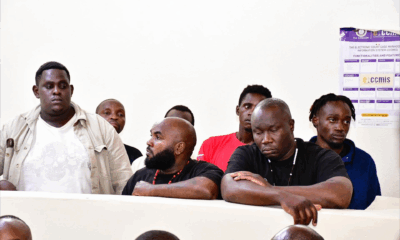Law
Supreme Court Orders Vivo Energy to Pay Shs 8.5 Billion Over Decades-Old Property Dispute
The Supreme Court has ordered Vivo Energy to pay Shs 8.5 billion to Thalion International Limited, concluding a protracted legal battle that spans over five decades and centres around a prime property on Benedicto Kiwanuka Street in Kampala.
The dispute dates back to a 1972 agreement between Husenali Nathu Ltd (HNL) and Shell and BP Uganda Ltd (Shell-BP), which tasked HNL with constructing a three-storey building on Plot 49, South Street. The arrangement provided that the ground floor would serve as a fuel station for Shell BP, while the upper floors were reserved for office use by HNL. In exchange, Shell BP agreed to transfer ownership of the land to HNL’s nominees, who would then sublease the ground floor back to Shell BP.
While HNL fulfilled its obligation and handed over the completed ground floor on September 22, 1972, the political climate changed dramatically. The expulsion of Asians by President Idi Amin disrupted the planned transfer, as HNL’s nominees—despite being Ugandan citizens—were of Asian descent and forced to flee the country. This left the property’s ownership unresolved for years.
From 1972 to 1990, Shell BP continued to occupy and profit from the entire property, operating the fuel station and leasing the office floors. Disagreements over the number of tenants and rental income collected during this period became the core of the legal fight.
In 1989, Amirali H. Nathu, one of the original nominees, returned to Uganda and engaged Shell (Uganda) Ltd—Shell BP’s successor—in efforts to resolve the dispute. After failed negotiations, HNL’s nominees filed a High Court case in 1993, demanding the transfer of ownership and accountability for rental income.
Although Shell eventually agreed to the transfer in a High Court consent order in 2001 and vacated the upper floors in January 2002, no consensus was reached regarding the rental arrears. The legal battle continued.
In 2006, HNL’s interests were assigned to Mercator Enterprises Ltd (MEL), which pushed the case forward. MEL sought recovery of rent and mesne profits—a legal term for compensation for unlawful occupation of property.
While the Court of Appeal had earlier awarded MEL Shs 154.8 million in mesne profits and Shs 50 million in general damages, the Supreme Court found the amount inadequate. In a decisive ruling, the court increased the award to Shs 8 billion in mesne profits and Shs 500 million in general damages.
“The Court of Appeal had awarded the appellant Shs 50 million as general damages, which is about 32% of what it had awarded as mesne profits. I, however, find an award of Shs 500,000,000 as general damages fair and adequate in the circumstances of this case,” read part of the Supreme Court judgment.
The final compensation of Shs 8.5 billion is to be paid by Vivo Energy, Shell’s successor, to Thalion International Ltd, which now holds the interests previously pursued by MEL.
This landmark ruling not only ends one of Uganda’s longest-running commercial property disputes but also underscores the enduring legal consequences of historical injustices tied to the 1972 Asian expulsion.
Comments






